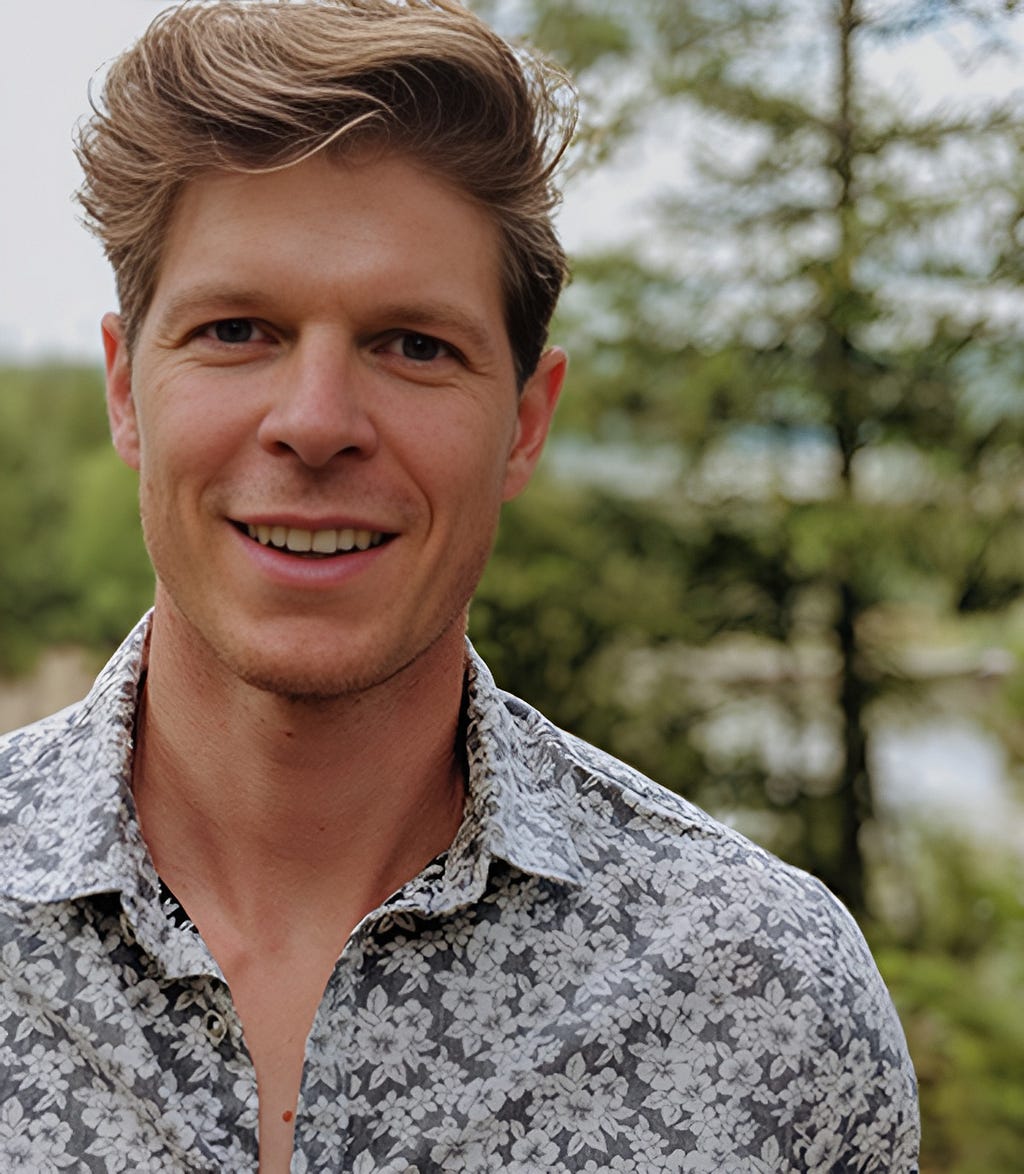
…I believe business is the best vehicle for changing the world. The essence of business is first to understand your customer base, then grasp the pain they’re experiencing, and finally design an offering to help them overcome that pain and find a solution. I love business in general, but what excites me even more is applying this approach to solving the world’s problems. What’s particularly compelling about purpose-driven organizations is their natural ability to attract individuals who share core values and a belief in creating a better world. The outcome is a fascinating mix of people who are incredible to work with, and the culture in these types of organizations is truly invigorating.
I had the pleasure of talking to Russ McLeod. Russ has emerged as a pivotal figure in the intersection of business acumen and social entrepreneurship. Born and raised in the northern stretches of British Columbia, Canada, in a town called Prince George, McLeod’s early life was steeped in the values of teamwork, resilience, and community. From the fields of team sports, where he learned the importance of collaboration and strategic thinking, McLeod carried these lessons into his academic pursuits, culminating in a business degree from the University of Ottawa.
In the early 2000s, McLeod ventured into the realm of social impact, initially making his mark at WE Charity, formerly known as Free the Children, an international development charity and youth empowerment movement.. His contributions to WE Day were significant and in 2010 he moved to the social enterprise arm of the organization, ME to WE where his influence would deeply manifest. As Executive Director of ME to WE, McLeod championed the philosophy that businesses can be both profitable and impactful. ME to WE flourished while contributing substantial give-backs to its charitable partner. These give-backs were pivotal in transforming lives through initiatives like access to clean water, education, and the empowerment of women entrepreneurs.
In personal terms, McLeod’s journey reflects a deep-seeded desire to merge the efficiency and innovation of business with the passion and purpose of social change. This is exemplified not just in his work with ME to WE but also in his latest venture, Mightyhum. Here, McLeod seeks to leverage his extensive experience to assist purpose-driven CEOs in scaling their impact, embodying his belief in business as a powerful force for good.
Moreover, McLeod’s involvement in initiatives like ImpactATM, a virtual advisory event, highlight his ongoing commitment to mentorship and community. By facilitating connections between impact-focused organizations and seasoned advisors, he continues to foster a culture of growth, learning, and positive change.
Russ McLeod’s story is one of continual evolution — from his roots in a small Canadian town to becoming a figurehead in the global movement towards socially conscious business practices. His efforts illuminate the potential for businesses to not only succeed financially but to also play a crucial role in solving some of the world’s most pressing problems. McLeod’s work is a beacon for those who seek to combine the power of business with the heart of community service, proving that the two can indeed go hand in hand for the greater good.
Yitzi: Russ It’s an honor to meet you. Before we dive in deep, our readers would love to learn about your personal origin story. Can you share the story of your childhood and how you grew up?
I grew up in northern British Columbia, in a town called Prince George, which is about 800 kilometers north of Vancouver. That’s a good 10-hour drive to get to where I grew up. I played a ton of sports throughout all of my school years. It was the team aspect of sports that drew me in. There’s something special about learning to play and perform as a team.
That same type of experience drew me into studying business at university. I love the concept of business and how it is also like a living organism. But when I graduated, I felt that a purely for-profit focus wasn’t the perfect fit for me. That’s when I started to search for a purpose-driven organization to work with.
The organization I found was a youth organization called Free the Children. There were 12 to 16 full-time employees, most of them living and working out of the founders’ homes, with desks set up in the living room. It was a real grassroot effort which is what attracted very influential people and groups like Oprah and the UN. It was the first time I had the opportunity to meet a whole new community of people with shared values. It also provided me with some of the most exciting roles I ever had.
One such role was to create and develop a youth event, later known as WE Day. Youth couldn’t buy a ticket to attend; they had to earn their ticket through community service. The event took some time to build, and eventually it started to really attract some big names like Justin Bieber, Selena Gomez, and Demi Lovato. There were also dignitaries that were invited to speak, the Dalai Lama and Malala; and even business and political leaders like Richard Branson and Al Gore. It was amazing to watch young people find meaning through reaching out and helping others.
After five years on the event side I transitioned to the social enterprise arm called ME to WE. As Executive Director, I had the chance to use my business skills. We had a retail arm and a travel arm. We were able to unite profit and purpose harmoniously with a social enterprise business model.
For example, within the retail arm, we employed 1,400 artisans in rural Kenya, paying them 2.2 times the fair wage for the region. These artisans made gorgeous bracelets that we then sold in stores across North America. In US retailers like Walgreens, Bloomingdales, Nordstrom, and Fossil and in Canada with iconic brick and mortars like Holt Renfrew and The Bay.. Through the sale of artisan goods we were able to kick back all sorts of financial literacy and income generating programming for artisan livelihood.. A decade later, I had the opportunity to go back to Kenya and see the impact in person. Driving through a village in the Masai Mara, I saw a large structure in the distance. The driver explained that the artisans had pooled their money together and purchased cattle to create a milk co-op. This milk co-op became the largest distributor of milk in the region. It was incredible to see that entrepreneurial spirit take root in the region.
All of this work led me to my next chapter in social entrepreneurship: founding my own impact enterprise called Mightyhum. It’s an opportunity to apply everything I’ve learned to help purpose-driven CEOs scale their impact. I’m really enjoying this journey. It’s a brand new challenge and a ton of fun.
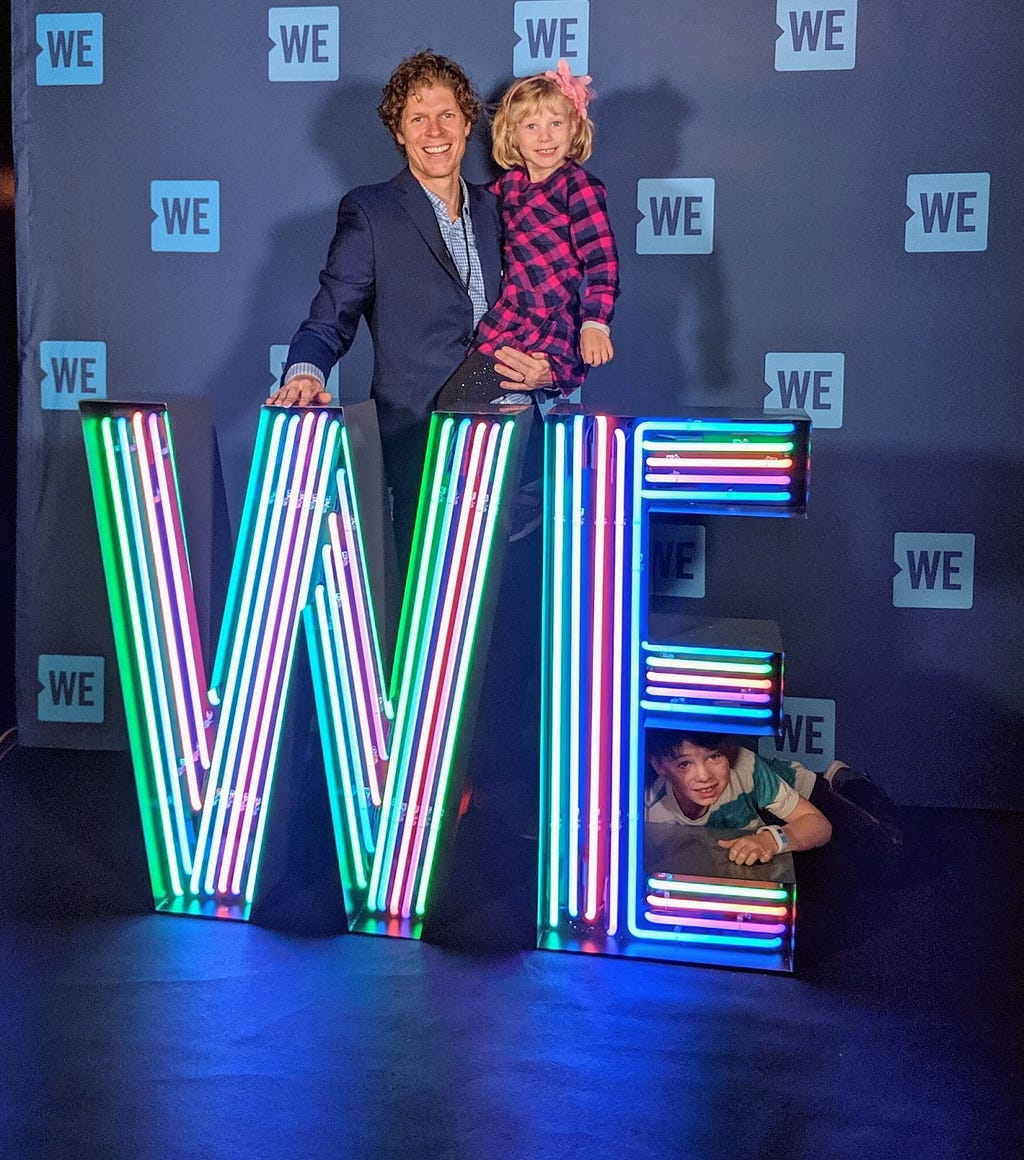
Yitzi: You probably have a lot of amazing experiences, anecdotes, or memories. Looking at the large breadth of your career, can you share one of your favorite stories or encounters from your work?
Most recently, I had the chance to work with the YWCA in Chicago. They run an amazing accelerator program called Breedlove, which supports women of color entrepreneurs who have revenues ranging from $100,000 to $2M. I originally joined as a mentor. A week before the very first cohort was set to launch, the YWCA’s curriculum partner pulled out, leaving 19 entrepreneurs without a program. Jill Miller (a fellow mentor) and I, along with a few people from the YWCA, sat down and questioned whether we could create a high quality accelerator. We decided to give it a go. In about a week and a half, we built a brand new curriculum, engaged our networks, and brought in a set of world-class speakers.. It was a classic “build the plane while you fly it” experience.
We’re now in our fifth cohort , and it’s one of the programs I’m most passionate about because of the impact it’s having on these women’s businesses. The belief is: with adequate funding and support, entrepreneurs can have a catalytic impact on the communities they serve.
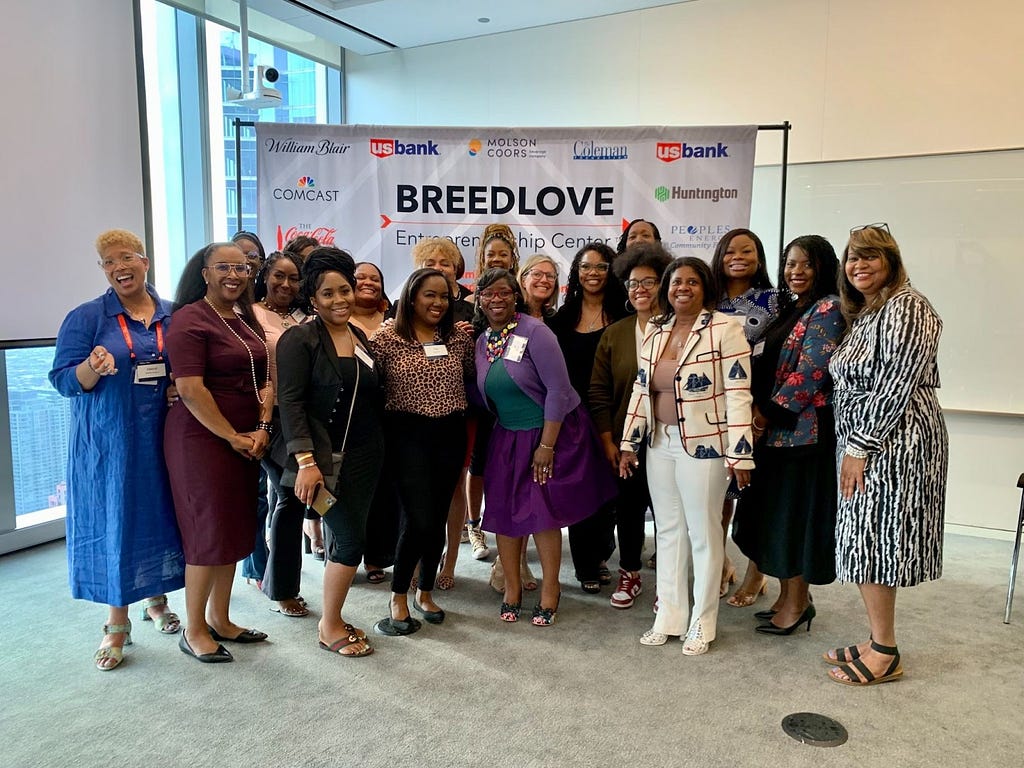
Yitzi: It’s been said that sometimes our mistakes can be our greatest teachers. Do you have a humorous story, nothing embarrassing, about a mistake you made when you were first starting and the lesson you learned from it?
It’s not particularly funny, but the biggest mistake I made when starting Mightyhum was talking too much. . What I needed to learn was the art of listening. This has completely shifted not only the way we approach business acquisition but also how we conduct business as an organization. We have become really great active listeners. That’s how we’ve been able to deliver the greatest client value.
Yitzi: We love stories where someone who’s further along opens a door or creates an opportunity for someone, and that changes their life or trajectory. Do you have a story like that where someone opened a door for you, and they didn’t have to, and it impacted your life?
I have quite a few, but let me share one that was particularly important to me. I mentioned earlier that I grew up in Northern BC and was an athlete throughout my life, which greatly shaped my identity. When I went to university, I decided not to try out for the sports teams due to injuries and feeling worn down. What I hadn’t anticipated was losing my identity as an athlete, which was how everyone had always seen me. In my second year of university, I moved to the University of Ottawa. That was in 2001, and I was living in a dingy basement apartment. I didn’t have much of a support network, and that was also the year 9–11 happened. I remember feeling lost.
I had an opportunity to talk to one of my professors after class. During that 45-minute meeting, I talked almost the entire time, sharing all my fears and concerns. He barely got a word in. At the end, he asked me if I had ever considered being a teaching assistant. He was the assistant dean at the University of Ottawa, Peter Koppel, who sadly passed away a few years ago. He shifted my thinking about my identity and opened the door for me to become a teaching assistant. In the first semester as a teaching assistant, I mentored first-year students who were struggling. By the end of the semester, three students came back to me and said I had made a positive impact on their lives. It was the first time I realized I could positively impact the lives of others. Professor Koppel initiated my journey towards something that had meaning, something purpose-driven.
Yitzi: So let’s talk about your work. You have so much impressive work. Can you share with our readers the exciting projects you’re working on now, what your vision for the future is, and what you hope to be working on in the near future?
I’m working on a project called ImpactATM. It’s a free virtual event that we’re running for impact-focused CEOs and founders who can see a path to the next level of growth but are struggling to understand how to get there. This happens to businesses of all sizes, whether they have five million or twenty million in revenue. Every organization goes through this phase where they figure out how to grow, reach a certain stage, and then get stuck trying to figure out the next steps. This learning cycle can take businesses two to three years to figure out: where their competencies are needed in order to grow.
In my career, mentorship was crucial in breaking through these types of growth cycles. I had incredible mentors like Don Morrison, the former chief operating officer of BlackBerry; Cathy Piller, head of the CMO office at BlackBerry; and Joe Diabaldo, who runs his own recruiting firm called Clarity Recruitment. These people not only gave me their time but also rolled up their sleeves to help me figure it out.
What I’ve been doing is leveraging this tremendous network I’ve built in the business community, to help brilliant impact focused CEO’s. We select advisors based on the specific problems facing the CEO. Then we design a whole hour and a half advisory session just to dive into the problem and outline a path forward. It’s been tremendously successful, and although the program is still in its prototype stage, I’m really excited. We’re currently on the hunt for more impact-focused organizations interested in participating. If you know any, send them my way!
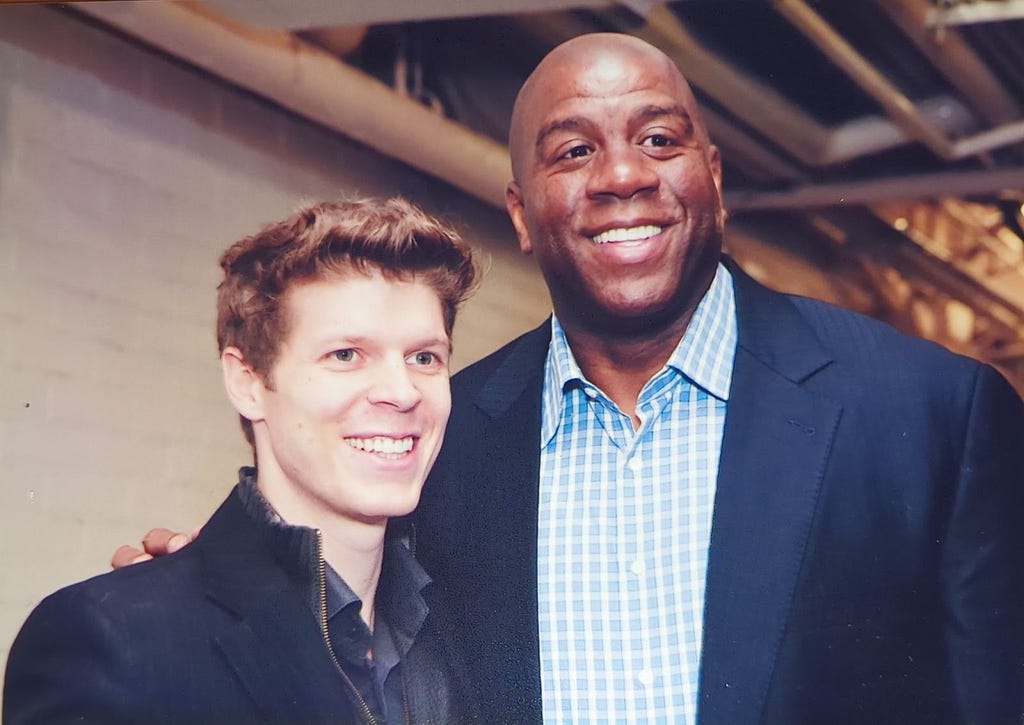
Yitzi: So to address that and to facilitate that, can you give your elevator pitch to businesses in general? Why is it important for your business to be a purpose-driven business rather than a standard plain vanilla business?
I believe business is the best vehicle for changing the world. The essence of business is first to understand your customer base, then grasp the pain they’re experiencing, and finally design an offering to help them overcome that pain and find a solution. I love business in general, but what excites me even more is applying this approach to solving the world’s problems. What’s particularly compelling about purpose-driven organizations is their natural ability to attract individuals who share core values and a belief in creating a better world. The outcome is a fascinating mix of people who are incredible to work with, and the culture in these types of organizations is truly invigorating.
Yitzi: Amazing. The question that I often see asked is the idea of being able to evaluate impact, because often it’s not easy to do that. It depends on what you’re working on. What do you recommend to your clients or to businesses in general? How do you evaluate social impact?
Evaluating social impact can be a really complex process. Often businesses are concerned that they will be seen as ‘green-washing’. What I encourage groups to do is think about which existing frameworks they can tie back to. Don’t reinvent the wheel. Look at the Sustainable Development Goals (SDGs) as an example and figure out where your organization is making a meaningful contribution to an SDG goal. Then, you can start to develop ways to measure how you are impacting that goal. This approach ensures that the work you’re doing is not just performative but that you’re actually able to measure the outcome of your efforts.
Yitzi: With all the companies you’ve worked with, can you share a moment when you felt like you experienced, “Wow, this business is really making a difference?” Can you maybe share a story, memory, or anecdote of how you felt this business is making a difference?
Yes, there’s a group I’m working with called Lunum. Lunum uses data to help companies realize a return on investment in people and communities. They help companies recognize how their practices can have a positive impact on the world. I’ve been working with the founder, Jill Miller, since she was pre-revenue. We started with customer interviews to discover problem sets, then prototyping with volunteers to build code, then launching a product and securing her first customers. We are still on the path to building a successful company but she’s hit some incredible benchmarks:– partnerships with Harvard University and the International Fund for Agricultural Development; a feature by Gartner, securing over $1M in ARR and finally, a huge founding client in the quick-serve space. The feedback from the first set of customers has been overwhelmingly positive. It is early proof that the methodologies we are using are leading to real success and real social impact. It’s very exciting.
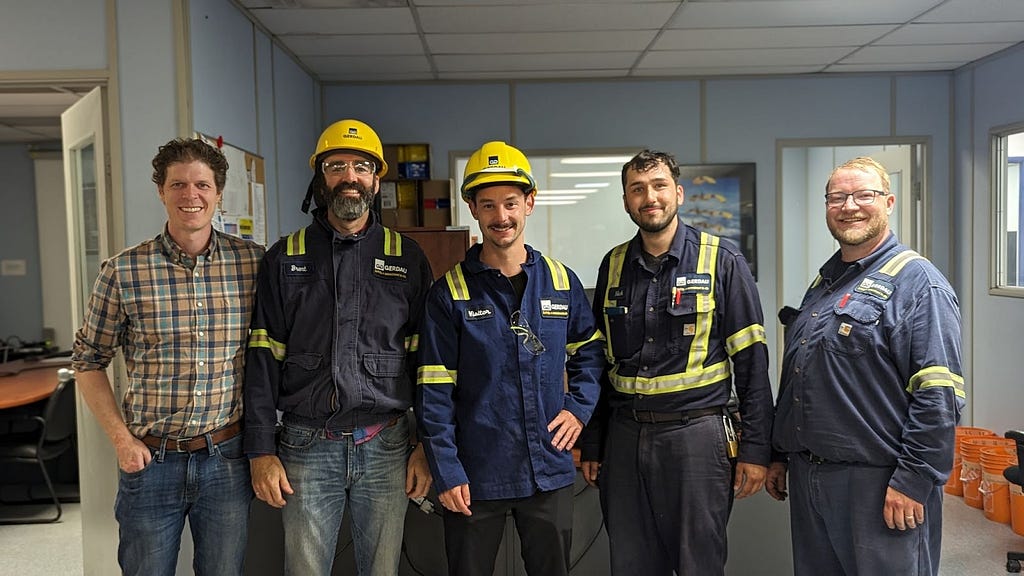
Yitzi: In your work with social impact companies, have you faced situations where your commitment to purpose and creating a positive social impact clashed with profitability? And how do you reconcile that? How do you make those tough decisions, those tough calls over being a vital and viable business versus making an impact?
Yes, in a previous role as the executive director, we were confronted with the realities of a recession. In a purpose-driven business, there’s a strong kinship in the shared values that bring employees together, often making the workplace feel like a family. Unfortunately, the recession necessitated a reduction in our headcount. This shift can make a previously familial culture feel more like a cutthroat business environment, which is really difficult.
The challenge is that not all employees have a lens into the profit and loss statement, yet I was responsible for ensuring the long-term sustainability of the organization–ensuring we could be profitable and continue to make an impact. This required making hard decisions. There’s no perfect way to handle these situations, but what I learned was the importance of transparency, frequent communication, and being open to answer questions. This approach is the best way to navigate the difficult decisions that sometimes must be made.
Yitzi: Okay, so this is our signature question. Based on your experience and success, can you share the five things you need to create a highly successful purpose-driven business?
Yes, here are the five points:
- A path to 20% profitability. This is key because to use business as a vehicle for change, scale is needed. And in order to scale you have to be seen as a company worth investing in.
- Have a meaningful theory of change. You need to articulate how you’re changing the world and how this mission connects back to the value you offer.
- An understanding of why your business deserves a place in your customers’ lives.
- Clarity around customer needs. A need that is so significant that customers are willing to allocate budget towards solving it.
- If you want to scale, access to capital is necessary. I’ve spoken to many funders who are excited about investing in impact-focused businesses, but these investments need to make financial sense and offer competitive returns.
Yitzi: You say that business is the best vehicle to make a change. So, you’re talking to businesses on how they can become a social impact business. But how about the opposite? We have nonprofits or purely social enterprises. How could they maybe incorporate business so they can become more viable?
Smart business practices share common threads, regardless of the organization’s nature. At the heart of it all lies a fundamental truth: serving your customers. Understanding their needs and crafting solutions is paramount. But what happens when you’re a donor-funded nonprofit? Here’s the twist: the people you serve — the beneficiaries — are not always the same as those who provide the funds. It’s a delicate dance.
Picture this: donors, motivated by their own needs, contribute money. Meanwhile, your focus remains on serving the groups or individuals who benefit from your work. Sometimes, these two paths diverge. Charities grapple with this tension. Pursuing larger donations can bring constraints and expectations, potentially steering organizations away from their core mission.
In this intricate dance, finding harmony between donor interests and beneficiary needs is both an art and a science. I encourage charities to invest in designing a strong theory of change which articulates the problems they solve for their beneficiaries. When charities effectively communicate this vision to their funders, magic happens. The clearer the vision, the less likely they’ll stray from their core mission.
In this dance between purpose and funding, storytelling becomes their secret weapon.
Yitzi: How do you address the cynics’ challenge that companies doing this are just trying to greenwash or whitewash their image? How do you address that?
I don’t know how to address the cynical view, but what I can say is if you’re an organization that plans to positively impact the world, it’s incredibly important that you build a meaningful theory of change. That theory of change will protect you from claims of greenwashing.
If you have a thoughtful methodology underpinning the work you’re doing, it will support your ability to speak with authenticity about the impact you’re having.
Yitzi: So this is our final aspirational question, Russ, you’re a person of enormous influence because of the platform you’ve built, and people take your words very seriously due to your great work. If you could spread an idea or inspire a movement that would bring the most amount of good to the most amount of people, what would that be?
Recently, I conducted interviews with over 20 large corporations, delving into their sustainability efforts. The findings left me pleasantly surprised. Amidst the noise of the online world — often fraught with anger and discord — there’s a different reality unfolding.
Positive change is afoot. Everyday businesses are stepping up, committed to minimizing their negative impact on the world. It’s easy to underestimate the collective power of these actions. Yet, they’re quietly shifting the tides on pressing global issues.
Remember: beyond the virtual realm, real-life progress is happening — one business decision at a time.
Yitzi: Okay, beautiful. How can our readers continue to follow your work online? How can they engage your services for their own business? Yeah, how can they support your work in any way?
Connect with us on LinkedIn — my personal page is Russell McLeod and our business page is Mightyhum. Most importantly, we’re searching for great ImpactATM candidates. Purpose-driven CEOs and Founders can apply on our website or email me directly at [email protected].
Yitzi: Amazing. Russ, it has been an honor, truly an honor, and I am excited to share this story, this article, these stories with the world and look forward to being in touch with you and continuing to support your work.
Yes, I really appreciate you taking the time.
Yitzi: It’s my pleasure.
Social Impact Heroes: Why & How Russ McLeod Of Mightyhum Is Helping To Change Our World was originally published in Authority Magazine on Medium, where people are continuing the conversation by highlighting and responding to this story.